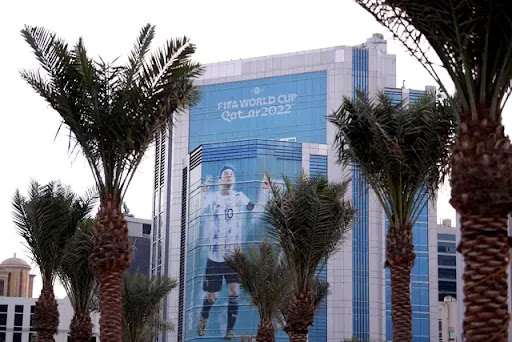Meta is attempting to get ahead of harassment concerns during the 2022 FIFA World Cup by laying out what the company is doing to protect players and fans from harmful content. Both Facebook and Instagram were criticized last year for failing to protect Black players on England’s national football team from racist abuse, with players being bombarded with harassment during the 2021 European Championship tournament that resulted in a social media boycott from teams and organizations across England.
In a blog post today, Meta says it is working with teams and associations like FIFA to teach players how to use anti-harassment features on Instagram, like “hidden words” and “limits.” It also highlights that it introduced new nudges to Instagram earlier this year that discourage users from replying to offensive comments and said it was able to take action against over 17 million pieces of hate speech between April and June this year. None of those features are new or specifically designed to handle the World Cup, though.
“We have clear rules against bullying, violent threats and hate speech — and we don’t want it on our apps,” Meta wrote in the blog post. The statement comes as tensions are rising around the 2022 FIFA World Cup amid criticism from fans and players alike regarding the host nation’s numerous human rights violations against migrant workers, women, and the LGBTQ community.
Regarding what other protections are already in place, Meta highlights a number of tools that essentially allow users to do their own moderating: users can manage comment permissions on a post-by-post basis; they can disable public direct messages; and they can block offensive users. But these solutions could be less than ideal for public figures who want to freely communicate with their fans.
FIFA and the wider football industry (by which I mean soccer, if that wasn’t apparent) already has a bad reputation surrounding the conduct of its fans and members, but the incoming 2022 FIFA World Cup in Qatar has especially spiked concerns. Protests around human rights have been ongoing since the tournament was awarded to Qatar — a decision that the United States Department of Justice concludes was the result of FIFA officials being bribed.
An investigation in 2021 found that at least 6,500 migrant workers have died due to extreme working conditions in Qatar (including a lack of access to water). Investigations by Amnesty International and The Guardian concluded that the migrant workers forced to build Qatar’s stadiums were essentially enslaved to do so — unpaid and stripped of their passports to prevent escape.









0 Comments